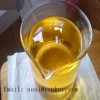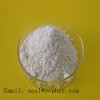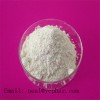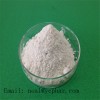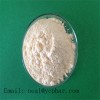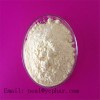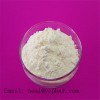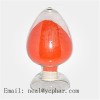Safe Organic Solvents Grape Seed Oil Cas 8024-22-4 for Food
Quick Details:
Product name: Grape seed oil
Alias: Vitis vinifera
CAS Registry Number: 8024-22-4
Einecs No: 287-896-9
Extraction: Cold extraction method
Appearance: pale yellow oily liquid
Relative Density (20 ): 0.915 - 0.925
Refractive index (20 ): 1.4700 - 1.4750
Linoleic acid: 70-76%
Grade: Natural Plant Extract; Flavors & Fragrances; Health Care Raw Material.
Storage: Shading, confined preservation
Product Description:
Grape seed oil is made .from selected grape seed obtained by cold pressing from refining natural products, rich in essential fatty acids, linoleic acid, rich in vitamin E, A, D and other fat-soluble vitamins and various trace element, is a rare natural high nutritional oils. Its nutritional value and medicinal value has been fully affirmed by scientists at home and abroad.
Applications:
1. Grape seed through the most advanced cold pressing method and refined, is one of the very popular in the base oil and the effect is outstanding varieties. Grape seed oil is a natural non-toxic properties, so children, pregnant women, the elderly and athletes are applicable.
2. antioxidant, dilute the stain
3. endocrine disorders caused by dry skin, reduce melanin, whitening skin, removing chloasma;
4. to stimulate cell division and tissue regeneration, activation of the surface cells, reduce wrinkles, delay aging;
5. inhibit and remove the body of free radicals, anti-cancer anti allergic effect.
6. anti prostate cancer, the role of anti liver tumor, but also against damage to the nervous system.
Usage:
1. Cosmetics
It contains more linoleic acid than many other carrier oils. Grape seed oil is a preferred cosmetic ingredient for controlling moisture of the skin. Light and thin, grape seed oil leaves a glossy film over skin when used as a carrier oil for essential oils in aromatherapy. Grape seed oil is also used as a lubricant for shaving. Grape seed oil is also used as a growth and strengthening treatment for hair.
2. Health care
Grape seed oil may provide some health benefit. Grape seed oil increases high-density lipoprotein (HDL-C or "good cholesterol") levels and reduces LDL levels.
3. Cooking
Grape Seed Oil may be used as an ingredient in salad dressings and mayonnaise and as a base for oil infusions of garlic, rosemary, or other herbs or spices. It is also excellent for use in baked goods, pancakes, and waffles. Grape Seed Oil is also sprayed on raisins to help them retain their flavor. Due to its clean, light taste, and high polyunsaturated fat content,
Grape seed oil is typical of vegetable oils: Approximately 3, 700 kJ (880 kcal) per 100 g, or 500 kJ (120 kcal) per 15 ml tablespoon.


